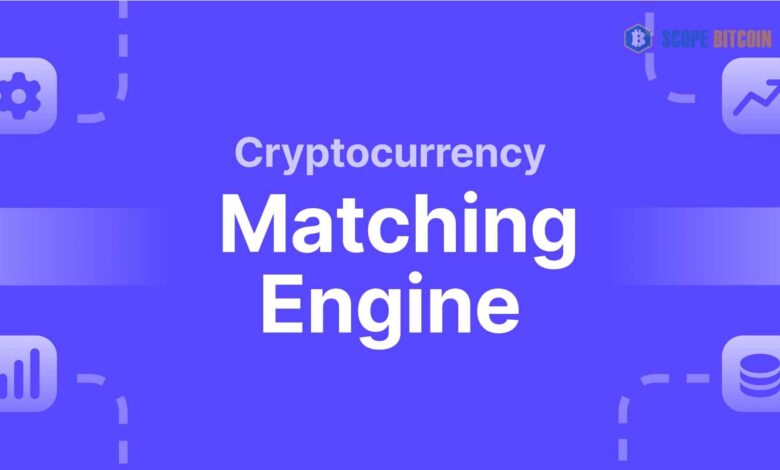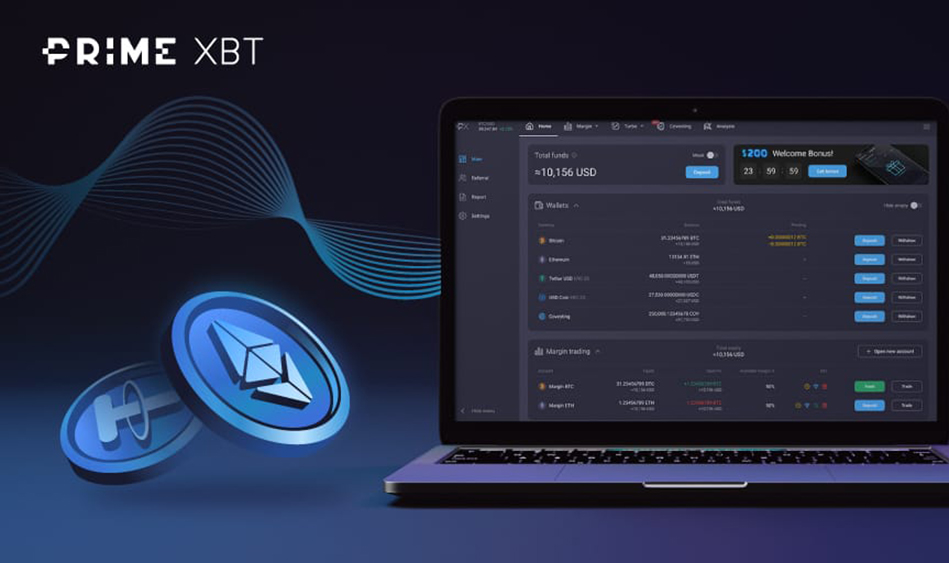
Cryptocurrency Matching Engine: A Complete Guide By Scopebitcoin
Crypto exchanges are in high demand due to the increasing number of individuals looking to invest in digital money. The ease and speed with which they facilitate the buying, selling, and trading digital assets is one of their main draws.
The market’s volatility is often the main reason people put off investing in cryptocurrency. Cryptos’ value fluctuates for many reasons, not the least of which is market forces. Particular emphasis should be placed on the function of the matching process inside the crypto setting. What is a crypto matching engine, and how does it work in a trading context? This piece provides the solution.
How Does the Matching Engine Work?
An essential component of any platform involved in exchange activities is, without question, the matching engine. The usual way it works is as follows:
- Gathering info: The crypto matching engine gets information about the two parties to the transaction, including pertinent details like the deal’s price, quantity, and trade requirements.
- Analyzing data: It examines the collected data to locate appropriate matches based on each party’s trade requirements.
- Matching procedure: It matches both sides’ sell and purchase orders based on market factors, including price and timing.
- Confirmation of trades: Upon order identification, the system sends a notification to both parties informing them of the thriving trade.
- Settlement: The cryptocurrency exchange matching engine’s last operation is to settle a deal. It verifies the transfer of money or assets from the seller to the purchaser and vice versa, indicating that the deal is complete.
Furthermore, the engine can help guarantee the efficient and timely closing of transactions. Trading will go more quickly with a good crypto matching engine because it can soon match buy and sell orders. Essential in any market, but more so in volatile ones where prices are prone to unexpected swings. On top of that, having a reliable matching mechanism can entice more people to sign up for the exchange. Users are more likely to trade when an exchange has a solid matching system. Client volume, trading capacity, and liquidity can all increase.
Best Matching Algorithms
Reliable and secure exchange software development solutions supporting all transactions are becoming increasingly important as the Bitcoin sector grows. In return, a plethora of algorithms can be used to match orders. While the first-come, first-served system is undoubtedly among the best, there are a handful of alternatives to think about as well:
Like the first-come, first-served system, the pro-rata method prioritizes more significant deals, and as a result, large-scale deals are likely to be finalized before small-scale ones. Pricing based on time-weighted average: It lowers the cost of deals compared to the going market rate mentioned earlier. Therefore, if you are trying to buy a coin that is now cheap, your trade will soon be matched with someone else’s order that is trying to sell at a decent price. These are just a few algorithms that could be utilized for an exchange. Each has advantages and disadvantages; picking the right one depends on the specific needs.
Matching Engine Types
There are mainly three types of cryptocurrency engines:
- A matching engine that is controlled centrally and acts as a middleman in all transactions is known as a centralized one. The central entity upholds market integrity and matches all deals through the significant order book.
- Non-centralized systems are known as decentralized ones. Instead, participants use P2P networks to match orders and communicate. Using this kind of cryptocurrency matching engine benefits from greater transparency and decentralization.
- Combining aspects of centralized and decentralized systems, a hybrid engine exchange integrates both methods. Although it frequently uses a central order book, decentralized networks for peer-to-peer processes may also be used. It offers a portion of the advantages of both systems.
There is no easy answer to the best quality to choose. Every kind has its advantages and disadvantages. The downside is that centralized ones are easier to hack, even though they are usually faster and better. Decentralized ones resist attacks but move at a snail’s pace and aren’t very effective.
Matching Engine Speed
A crypto-matching engine’s “latency” is its transaction processing time. Finding a transaction counterparty can take a few seconds in a system with high latency. A low-latency one, meanwhile, can swiftly carry out contract executions. To put low latency in context, consider how fast market prices can change. If a trader wants to buy or sell at a specific price and make a profit, they will always want the trade to conclude as quickly as possible.
If you often deal with large orders, you must choose an engine that processes them quickly. Since decentralized trading engines use a peer-to-peer network instead of being ready for instantaneous order-matching, their performance might be affected. Therefore, centralized options are a good choice. It is essential to assess the engine’s speed and scalability before settling on a platform in high-order-flow trading environments. Typically, centralized ones are the ideal alternative for quick order administration.
Security of the Engine
As important as finding a solution is protecting the system. As a rule, decentralized systems are more secure than centralized ones. Due to their reliance on a critical server that attackers could target, they might be more vulnerable. Attacks are less likely to succeed in decentralized systems. Their use of a peer-to-peer network explains. Before choosing an exchange, you should consider its security. If you need your commands carried out quickly, a centralized solution is the way to go. If the system’s security is a concern, a decentralized one might be an ideal substitute.
Matching Engine Fees
One of the most important things to consider while choosing is commissions. Orders on several platforms incur a commission, which could be a specific amount or a percentage of an order’s value. Typically, centralized systems tend to charge more. The amount of supplementary infrastructure and assets needed will directly impact their performance. Decentralized methods rely on a P2P network, which allows them to charge reduced fees.









